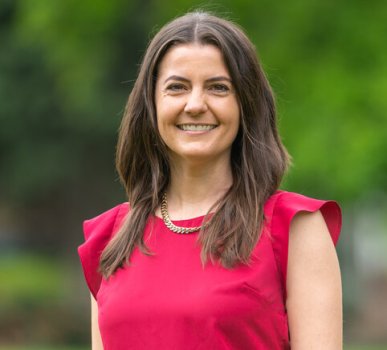During the holidays, councils saw bike lanes, e-scooters, and walking paths getting lots of use. But the enthusiasm for active transport isn’t just a summer fling, writes Portia Odell.

Recent polling by the Climate Council shows two in three Australians think governments should invest more in footpaths and bike lanes.
Councils can play a huge and important role in creating sustainable communities with clean transport at the forefront.
So it’s prime time for discussing how local governments can hit the accelerator on investment that gives their communities more active and sustainable transport choices, reduces reliance on increasingly expensive petrol and cuts emissions.
Transport is Australia’s third largest source of greenhouse gas emissions. Emissions from cars, motorbikes and utes in particular are one of our fastest growing sources of climate pollution. The air pollution generated from cars, trucks and fossil-fuel powered buses alone is responsible for up to 1,700 deaths every year in Australia. That’s more than the national road toll.
The good news is that making our towns and cities pedestrian and bicycle-friendly and encouraging the uptake of EVs (electric vehicles) will deliver cleaner, healthier air – particularly in our cities. Then there’s also the perks for hip pockets and the liveability of our communities – as well as being better for the climate.
Transforming the transport sector
The Cities Power Partnership believes councils can demonstrating to other governments – be it state or local – the opportunities for transforming the transport sector. For example, Wollongong City Council is championing bike-friendly roads, and Lake Macquarie City Council is charging ahead with their electric vehicle rollout.
Wollongong City Council’s “goal of improving access to cleaner transport options for everyone” includes upgrading pathways and crossings, investing in on and off-road pop-up cycling infrastructure, supporting cycling for recreation and adding new bike parking options near local cafés and businesses. They’re not only showcasinging best-practice to other councils, but internationally too. This year (2022), their focus on cycling was broadcasted globally to an audience of over 200 million people when the streets of Wollongong were transformed into a world-class bike racecourse for the 2022 UCI Road World Championships.
Lake Macquarie City Council took out top honours in the Cities Power Partnership 2020 Climate Awards for their EV Charging Strategy, a council-led initiative to see more electric vehicles on the road. Fast forward to now, and the council has already transitioned 75 of their passenger vehicle fleet to hybrid petrol/electric vehicles. They’re also making waves in the charging space, with recent upgrades to their charging stations, and grant funding to install more destination EV Chargers at three key tourism locations across the city by 30 June 2023.
Electrifying council fleets
Accelerating the uptake of EVs and electrifying council fleets is a key proponent of local government transport decarbonisation. With the average government fleet of vehicles entering the secondhand market after only three to four years, local governments can play a unique role in increasing the supply of affordable electric vehicles for Australians by going all-electric.
The Climate Council’s recent Clean Transport Scorecard empowers local and state governments to advocate to the Federal Government to design strong national fuel efficiency standards that will incentivise the supply of more cheap, clean electric vehicles to Australia.
This is important considering councils have a large range of different types of EVs – from utes to garbage trucks – and these policy levers are critical to ensuring the supply in Australia is available for local governments.
Cleaning up transport must be a priority for councils in reducing emissions, as we work to prevent harmful climate change. Local governments must invest in well-connected networks of footpaths and bike lanes, zero emissions public transport and affordable electric vehicles. This will empower Australian communities with plenty of clean, healthy options to get to where they need to go.
*Dr Portia Odell is Director of the Climate Council’s Cities Power Partnership





Leave a Reply